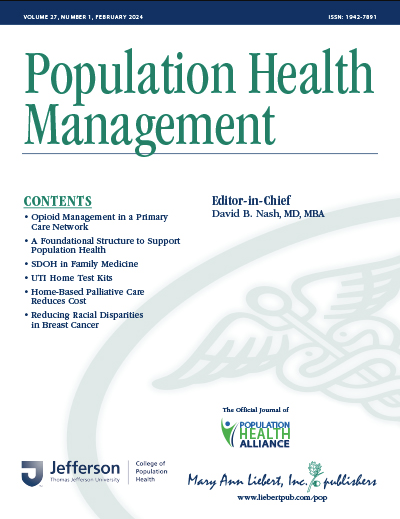Headline
Enrollment in a home-based palliative care (HBPC) program is associated with reductions in hospitalizations and total cost of care, along with increased hospice care utilization among individuals enrolled in a Medicare Shared Savings Program (MSSP) accountable care organization (ACO).
Context
HBPC programs have been shown to improve health outcomes, reduce avoidable acute care utilization and costs, and shorten nursing home stays, as well as lead to greater patient, caregiver, and clinician satisfaction. This study examines a partnership between an MSSP ACO and a home health and hospice organization offering HBPC, as well as the impact of patient enrollment in HBPC on utilization and overall costs.
Findings
Through an analysis of patient records of over 3,000 Medicare beneficiaries, the authors found that those who received HBPC were significantly less likely to be hospitalized compared with those who were not enrolled in the program (51% reduction). Additionally, individuals enrolled in HBPC were more likely to use hospice care (70% vs. 43%) and had lower overall total cost of care ($27,203 vs. $36,089).
Takeaways
These findings add to the growing evidence base demonstrating the efficacy of HBPC programs. The significant difference in total cost of care between the two groups of patients indicates that the savings generated by reducing the risk of acute hospitalizations outweigh the costs of delivering HBPC. Additionally, the observed reduction in hospitalizations reflects HBPC's capacity to facilitate patients' prolonged stay in their homes, generally aligning with patient and caregiver wishes for end-of-life care.

